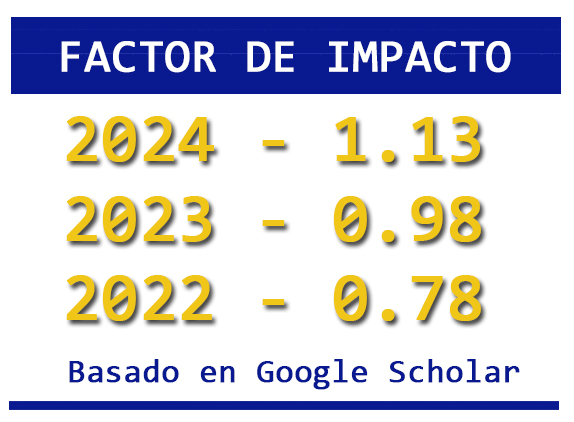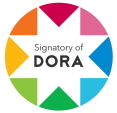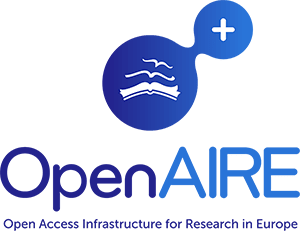Improvement proposal for the management of innovation in a technology-based company
DOI:
https://doi.org/10.36790/epistemus.v12i25.87Keywords:
Management, Innovation, Company, TechnologyAbstract
The objective of this work is to diagnose and propose improvements to carry out the management of innovation in a technology-based company. For this, a diagnostic methodology is applied that allows evaluating the ability of a certain company to innovate, because it does not have a formal process of Management of Technological Innovation. To achieve this objective, the research study carried out by the authors Quiroga and Borrás (2015) is taken as a reference. Bearing in mind that, the methodology proposed by the aforementioned authors, consists of seven dimensions and that to quantify each one of them, a series of questions must be asked, it is necessary first to define the weighting of said questions according to the characteristics of the company under study. Then, the methodology is applied to evaluate the innovation capacity that the company possesses. Finally, improvements are proposed to be implemented by the company with the...
Downloads
References
Cavdar, S.C. y Aydin, A. D. (2015). An Empirical Analysis about Technological Development and Innovation Indicators. Procedia - Social and Behavioral Science, 195, 1486-1495. DOI: https://doi.org/10.1016/j.sbspro.2015.06.449
Escorsa, P. y Valls, J. (2005). Tecnología e innovación en la empresa. Dirección y gestión. España: Alfaomega.
Eisenhardt, K. (1989). Building Theories from Case Study Research. Academy of Management Review, 14(4), 532–550. DOI: https://doi.org/10.5465/amr.1989.4308385
Fernández Sánchez, E. (2005). Estrategia de inovación. Argentina: Paraninfo.
Freitas-Filho, F.L. (2013). Gestão da inovação. Teoria e pratica para implantação. Brasil: Atlas S.A.
Krušinskas, R.; Benetytė, R. (2015). Management Problems of Investment in Technological Innovation, Using Artificial Neural Network. Procedia - Social and Behavioral Sciences, 213, 442-447. DOI: https://doi.org/10.1016/j.sbspro.2015.11.431
Nowacki, R.; Bachnik, K. (2016). Innovations within knowledge management. Journal of Business Research, 69(5), 1577–1581. DOI: https://doi.org/10.1016/j.jbusres.2015.10.020
Pacelli, L. (2004). The Project Management Advisor: 18 major project screw-ups, and how to cut them off at the pass. Pearson Education.
Quiroga, O. y Borrás, M.A. (septiembre, 2015). Metodologia de pesquisa qualitativa para estimular à inovação tecnológica. Trabajo presentado en el XV Simpósio de Engenharia da Produção Sul Americano (XV SEPROSUL), Sorocaba, Brasil.
Quiroga, O. y Rossetti, G. (2016). Modelo extendido a estimular la innovación de productos-procesos. Trabajo presentado en el Congreso de Ingeniería de Procesos y Productos (CIPP 2016), Rosario, Argentina.
Secretaría de la Pequeña y Mediana Empresa y Desarrollo Regional. (2010). Micro, Pequeñas y Medianas Empresas. Reso-lución 21/2010. Artículo N°1. Santa Fe, Argentina.
Downloads
Published
How to Cite
Issue
Section
License

This work is licensed under a Creative Commons Attribution-NonCommercial-NoDerivatives 4.0 International License.
The magazine acquires the patrimonial rights of the articles only for diffusion without any purpose of profit, without diminishing the own rights of authorship.
The authors are the legitimate owners of the intellectual property rights of their respective articles, and in such quality, by sending their texts they express their desire to collaborate with the Epistemus Magazine, published biannually by the University of Sonora.
Therefore, freely, voluntarily and free of charge, once accepted the article for publication, they give their rights to the University of Sonora for the University of Sonora to edit, publish, distribute and make available through intranets, Internet or CD said work, without any limitation of form or time, as long as it is non-profit and with the express obligation to respect and mention the credit that corresponds to the authors in any use that is made of it.
It is understood that this authorization is not an assignment or transmission of any of your economic rights in favor of the said institution. The University of Sonora guarantees the right to reproduce the contribution by any means in which you are the author, subject to the credit being granted corresponding to the original publication of the contribution in Epistemus.
Unless otherwise indicated, all the contents of the electronic edition are distributed under a license for use and Creative Commons — Attribution-NonCommercial-ShareAlike 4.0 International — (CC BY-NC-SA 4.0) You can consult here the informative version and the legal text of the license. This circumstance must be expressly stated in this way when necessary.
The names and email addresses entered in this journal will be used exclusively for the purposes established in it and will not be provided to third parties or for their use for other purposes.
























